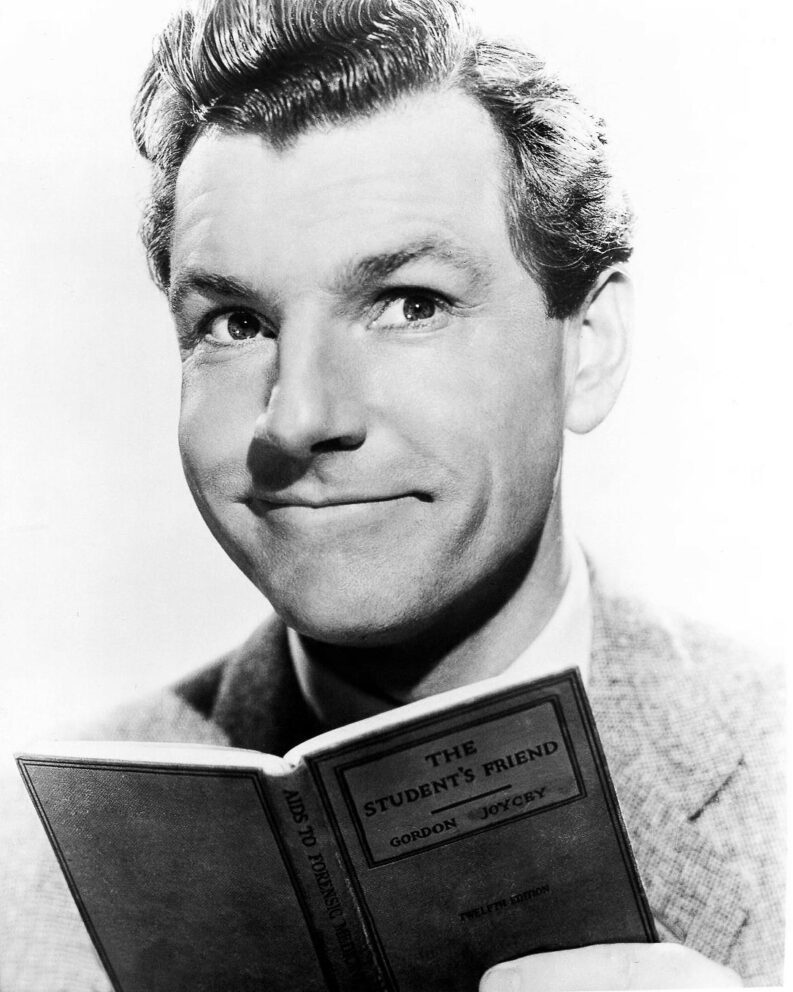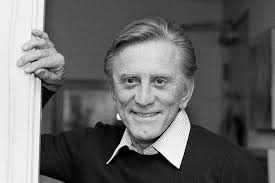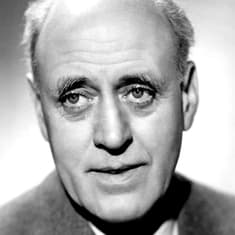
WARNING: This Article May Contain Spoilers
Born: 20th September 1914
Died: 12th July 1982 (aged 67)
As you will know my main modus operandi for these things is to look at an actors top five worldwide box office films and then talk about my favourite film of theirs. Unfortunately, as I have found out, that’s not always possible, I don’t know if the actor isn’t an international success or what but in such cases I will try to find a film from each decade of their acting career.
Kenneth Gilbert More was born in 1914 in Gerrards Cross, Buckinghamshire. His father served as a Royal Naval Air Service pilot. More spent many of his early years on the Channel Islands being educated in Jersey, where his father was general manager of the Jersey Eastern Railway. When his father died in 1931 More applied to join the RAF but he failed the test for equilibrium so he went to Canada to be a fur trapper but lacked the immigration papers and was sent home (this misfortune must be what he modelled most of his characters around). His theatre career started on his return from Canada at the Windmill Theatre, known mainly for their nude tableaux vivants (living pictures). At first he was employed as a stagehand but he was bitten by the bug and soon became the ‘straight man’ for the theatre’s comedy routines, a year later he was appearing in repertory in Newcastle.
On the outbreak of war, Kenneth More was given the commission of Lieutenant in the Royal Navy and saw active service on both the cruiser HMS Aurora (which participated in the operations hunting the German battleship Bismarck, although not with More on board but he did appear in the film based on these events – Sink the Bismarck! – nineteen years later) and the aircraft carrier HMS Victorious (obviously his equilibrium wasn’t a problem when it came to the undulating waves!). After the war he returned to rep and subsequently made an appearance on the West End stage in ‘And No Birds Sing’. TV soon followed but the stage was his main income – and it he was the stage that got him his first big film role in Genevieve – if he hadn’t auditioned for the role of Freddie in Rattigan’s The Deep Blue Sea and got high reviews then he may never have gotten the role. He reprised the role two years later for a TV production. By now More was a highly rated actor and was topped to become an international star but More himself turned down the chance to go to Hollywood like many of his compatriots because he was “unsure his persona would be effective there”. Nor did he believe that he should become a regular TV star because “If I do, it’ll kill the theatre business that night. That’s true of any big actor in Britain today. It was terrible what happened to the theatres the night Laurence Olivier went on. : Nobody went”. More’s acting career dipped in the 1960s and he returned to the stage and made the odd TV appearance. But although his star status was waning he did make several small yet noteable film appearances.
Scott of the Antarctic (1948)
This film depicts Captain Robert Falcon Scott’s ill-fated venture to the South Pole in 1912, and with this as his first film Kenneth More is possibly luckier than most as he is more than just a face in the crowd. Although there is little focus on More’s role, Lt. E.G.R. ‘Teddy’ Evans R.N., he does make his presence felt with his usual charm without overshadowing his fellow cast; the problem is that he does get a little lost once the expedition starts, at first I thought he hadn’t gone but this is where we, obviously, start to concentrate on the characters that accompanied Scott to the Pole (in the film as in the actual expedition Lt. Edward ‘Teddy’ Ratcliffe Garth Russell Evans R.N. was not taken on the final stage to the Pole).
Paradise Lagoon (original title: The Admirable Crichton) (1957)
Based on J. M. Barrie’s play, The Admirable Crichton, this film is set in 1905 and is about class and how everyone has their ‘place’ in society. Kenneth More plays Crichton, gentleman’s butler in the Loam household. Lord Loam is very much of the belief that everyone should be equal but when he, his three daughters, two of their suitors, Crichton and Tweeny get stuck on a deserted island things get turned on their head. Kenneth More is the perfect gentleman’s butler, he has the perfect voice for the role, ‘very British’ but not to the point where he could be mistaken for the aristocracy. The shift between Crichton in London and Crichton on the island is good, he seems more comfortable in the island role but it is obvious that the ‘real’ Crichton is not too far away.
Loss of Innocence (original title: The Greengage Summer) (1961)
In Loss of Innocence Kenneth More plays Eliot, a complete rogue. Behind it all he is a bad man who’s done bad things but I couldn’t help routing for him. He does take the innocence of Joss, a 16 ½ year old girl (not what we would now class as innocence we’re talking early ‘60s innocence nothing more than a kiss or two) but he does a lot worse yet also does some good. He is the one who talks the hotel into taking Joss and her three siblings in when they turn up at the hotel without their mother, he befriends the children and spends time with them making their time in France happier although this is also beneficial to him. Although the clues are there when Eliot shows his true colours I didn’t want to believe what had unfolded as More’s portrayal was so convincing.
The Slipper and the Rose: The Story of Cinderella (1976)
OK firstly I would like to state that this is a musical adaptation of the story. Secondly I have to admit that even though the story is mainly about the Prince and Cinderella I found both their characters quite dull I was much more entertained by the ancillary characters like the King (played by the wonderful Sir Michael Hordern) and Kenneth More’s Chamberlain – they are all a lot more fun! More has a playful way with the Chamberlain (this helps with the fact that he plays wonderfully alongside Hordern) he has a wonderful delivery yet he does have a more serious scene with Cinderella when he has to tell her that the king will not give his permission for her to marry the Prince – there is a tenderness in his voice that is really comforting. It doesn’t surprise me that More does not sing, he like Hordern, he is more of ‘speaking singer’ but the Sherman brothers allow for this with the songs I love the ‘Protocoligorically Correct’ number it is well-choreographed but there is a little bit towards the end where More and Hordern are a little out of sink but they do not show it as they are both professional enough not to let it affect them and the director either didn’t notice or he thought it fitted and kept it in!
This may come as a surprise but I can’t say I have found a film of Kenneth More’s that I haven’t liked, alright I haven’t seen his whole catalogue but comedy or drama he can do both each with a subtle air of the other, but I have to say when it comes to my favourite film you can’t go wrong with mixing a little More with comedy and vintage cars as in Genevieve. Based around the friendship between Alan and Wendy McKim and Ambrose Claverhouse and the London to Brighton Rally (a rally for vintage/veteran cars that started in 1899 and still continues today). Genevieve is a temperamental 1904 Darracq 12-HP owned by Alan, Ambrose drives a Spyker a somewhat more reliable vehicle. At the start it is all about the rally but it’s what happens in Brighton and on the return is where it really gets interesting and more for More to play with. He plays the two sides of Ambrose very well, he is convivial and friendly when he needs to be but can also be a little bitter when things get heated when the race gets heated (both drivers are underhanded), yet this is a comedy and that is bubbling away under the surface constantly – which is what More is really good at.
Although Genevieve is my favourite I cannot do an article on Kenneth More without mentioning his portrayal of Flight Cadet (later Group Captain) Douglas Bader in Reach for the Sky. More portrayal is a sensitive and dramatic, and at times cheeky and head strong, all of which you would expect to find in a biopic about a man who lost both his legs in a aerobatics accident but still went on to fly in the Battle of Britain. I think More does an excellent job with the scenes where Bader is learning to walk with his new legs, it is obvious that he has had something to help with the stiff legs but he does not let that affect his portrayal – it was probably more of a ‘prop’ to give him a little help but as he ‘grows’ into the new legs there are a few moments where you notice that he bends both knees but I don’t think you’d have noticed them that much if you had seen this film before reading this article and I know, and I am not going to enter the discussion, that a physically impaired actor would have been able to play the role (from after the accident) better but I doubt there were many physically impaired actors around in the 1950s and could they have played the role before the accident better than Kenneth More? Having mentioned one biographical film it would be remiss of me not to mention one of the best Titanic films out there, A Night to Remember, in which More plays Second Officer Charles Lightoller. Forget that Jack and Rose bilge from the 1990s this is actually the story of the ship and is fairly accurate with many survivors or their family members as advisors. At the end of the film we are told how many lives were lost and what the loss of the Titanic did for the future safety of ocean liners. If that doesn’t make it accurate I don’t know what does!
Kenneth More was married three times and had two daughter, Susan and Sarah from his first two wives. He was married to his third wife until his death although they did split for a while and only reconnected when he was diagnosed with Parkinson’s disease. He wrote two autobiographies (the second of which received critical acclaim) and a book of reminiscences. He was awarded a CBE in 1970 and in 1975 Variety Club of Great Britain him with a special silver heart for 40 years in show business, the ceremony was held at The Savoy and Sir Douglas Bader himself was in attendance as Bader and More had remained friends since the making of Reach for the Sky. Since 1974 there has been a little regional theatre in Ilford that bears his name – More made his first appearance there in 1977 in an evening of poetry, prose and music entitled “Kenneth More Requests the Pleasure of Your Company” – he is probably one of the only actors to have had a theatre named after them within their lifetime let alone to have appeared on the stage. Kenneth More died in 1982 with his wife by his side.


